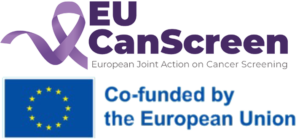Ethical, Legal and Social Implications (ELSI) assessment of data sharing
Summary
ELSI assessment of data sharing will be conducted focusing on three levels:
(1) individual (patient) level, specifically on the use of next-generation sequencing (NGS), which presents challenges for securing truly informed consent and honouring patient preferences for the many different types of genetic information potentially yielded by NGS); (2) institutional level represented by various stakeholders (e.g. professional organisations in genetics and oncology, test laboratories, clinical trials networks) with vested interests in deciding which types of sequencing results to analyse and return to patients or research participants, and how to manage clinical implications; and (3) societal level, e.g. questions of resource allocation and priority setting. This task will be led by DYPEDE, Greece.
Subscribe to our newsletter to get news and updates.
Subscribe to our newsletter to get news and updates.

The general objective of EUCanScreen is to assure sustainable implementation of high-quality screening for breast, cervical and colorectal cancers, as well as implementation of the recently recommended screening programs – for lung, prostate and gastric cancers. EUCanScreen will facilitate the reduction of cancer burden and achieving equity across the EU.
This project has received funding from the European Union’s EU4HEALTH Programme under the Grant Agreement no 101162959










